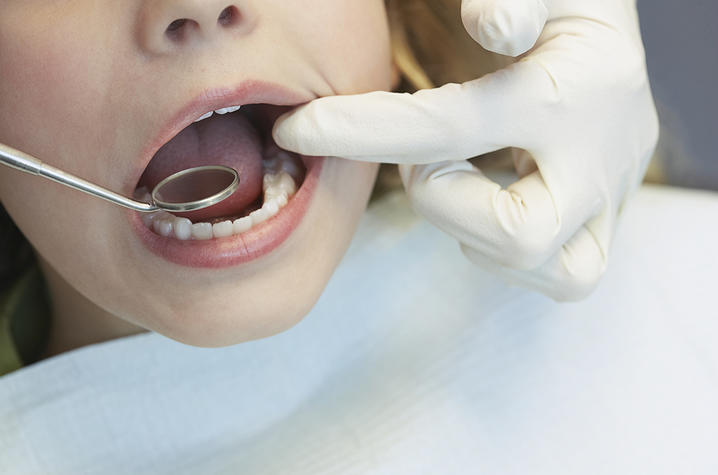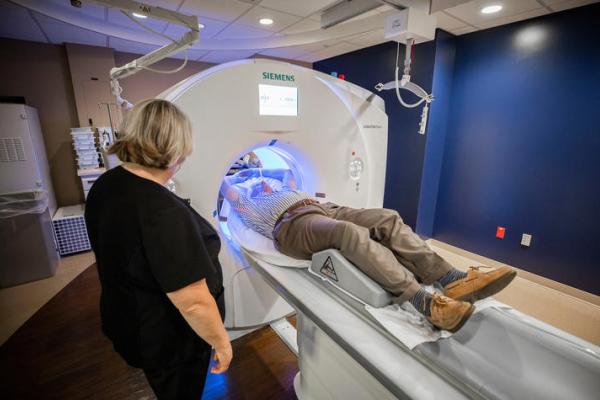Outreach Shows Progress, Promise in Fighting Oral Cancer Despite COVID-19

Nearly two years into a three-year project to "Eradicate Oral Cancer in Eastern Kentucky," the University of Kentucky's College of Dentistry (UKCD) continues its work to raise public awareness of the symptoms of oral cancer and help connect patients who need additional care to cancer specialists in Lexington.
UKCD was awarded a $1 million grant from the United Health Foundation in 2018 to tackle the high prevalence of oral cancer in Harlan, Letcher and Pike counties in Eastern Kentucky, and lead an integrated outreach and care program delivered to local residents through their local health departments. Despite COVID-19, their work continues.
Dr. Pam VanArsdall is the grant education director. She said once the pandemic hit, the team had to get creative.
"Oral cancer didn't stop when COVID-19 started," VanArsdall said. "This work is important and must continue. We are intentionally designing the grant activities to leave a legacy behind which will provide sustained benefits for Eastern Kentucky residents."
Kentucky has one of the nation's highest incidences of oral cancer, according to the National Institutes of Health, and the prevalence of oral cancer in the targeted counties is as much as 54% higher than the state average. Pike County has the highest rate of oral cancer in the state for women and people 50 years old and younger. Harlan County has the second highest rate of oral cancer for people over the age of 65.
Oral cancer has a high rate of mortality, with only approximately 57% of individuals surviving five years after diagnosis, due, in large part, to late discovery. If oral cancer is found early, the survival rates are excellent.
Prior to COVID, the team provided over 1,000 free oral cancer screenings in the three targeted counties. The plan is to resume those screening events once it is safe to do so.
In the meantime, VanArsdall said the team is carrying out a multi-pronged awareness campaign to continue educating people about the causes of oral cancer and how to prevent it, how to do your own self-exam and the importance of a yearly oral cancer screening by a health professional. This work includes educating community groups at Farmer's Markets, Feeding Programs, Food City groceries and local businesses; providing lectures for nursing, medical and dental hygiene students at University of Pikeville, American National University, and Big Sandy Community and Technical College; and working with high schools to create curriculum to curb tobacco use, as tobacco is responsible for 75% of the oral cancer cases.
Perhaps one of the biggest ongoing efforts includes educating health care professionals through in-person and Zoom meetings about oral cancer and how they might increase tobacco cessation efforts in their practices, including through educational resources for patients to learn about local, state and national programs to help them quit.
"Education and yearly oral health screenings are extremely important for highlighting the risk and early detection of oral cancer," Dr. Melvyn Yeoh, chief of the Division of Oral and Maxillofacial Surgery at the UKCD and principle investigator of the grant, said. "By bringing this project to Eastern Kentucky, we seek to decrease the rates and catastrophic outcomes that oral cancer can cause."
More from this series Research Priorities - Cancer
Credits
Mallory Olson (Public Relations and Strategic Communications)


